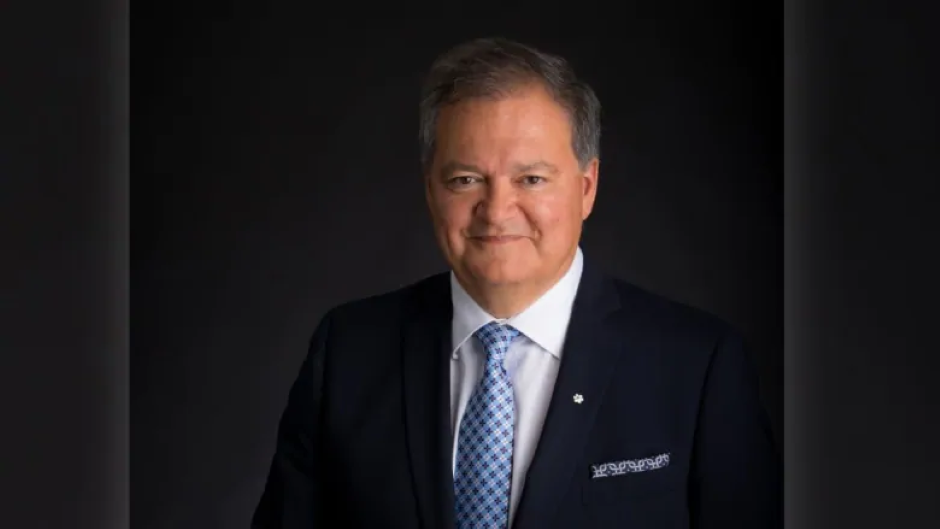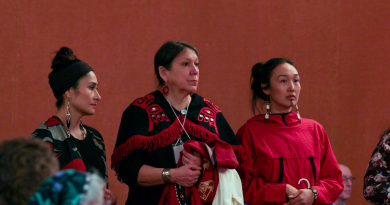Continuing education a priority for new Yukon University president in Canada’s North

Mike DeGagné says continuing education and applied professional programs will be a focus of his tenure as president of the first university in Canada’s North.
But his first priority will be nailing down the delivery of online programs in the fall, DeGagné said in an interview with CBC’s Yukon Morning on Monday.
This month, DeGagné officially became president and chancellor of the newly-minted Yukon University. He arrived in Yukon after serving as president of Nipissing University in North Bay, Ont., where he became the first Indigenous person to lead a chartered Canadian university in 2012.
DeGagné has been self-isolating since his arrival in the North, as he begins his five-year term amid an educational upheaval brought on by the COVID-19 pandemic.
Yukon University, previously a college until it transitioned to a degree-granting university in May, will deliver many of its programs online during the fall semester. The university expects to offer hands-on programs — such as sciences, trades and visual arts — through a mix of virtual and face-to-face classes.
Among his first orders of business, DeGagné says it will be important to meet with the chiefs of nearby First Nations once it’s safe to do so. DeGagné, who is Ojibway, has been recognized for his support for residential school survivors and First Nations, notably as head of the Aboriginal Healing Foundation, where he served as its founding executive director for 14 years.
He says the university needs to reflect the needs of the territory — a lesson he learned at Nipissing University, where he says there was an effort to tailor continuing education to the interests of the community.
Opportunities for continuing education
That engagement is also about ensuring that not only programming, but research decisions reflect and benefit the territory. It’s part of what makes Yukon University essential, he says.
As for educational focus, expect the university to put a particular emphasis on applied professional programs under DeGagné’s leadership.
“When you look at where the real growth is in the university sector, you often see things like social work, nursing, teaching — these sorts of things where people come in with a particular professional orientation,” he said.
“There’s opportunities there.”
Universities have been pushed to reckon with their contributions to systemic racism given the resurgence of the Black Lives Matter movement, supported by the solidarity of Indigenous peoples.
In an open letter published last month, Indigenous governance instructor Lianne Marie Leda Charlie called on Yukon University to provide an actionable plan to address the underrepresentation of Black, Indigenous and people of colour (BIPOC) among the faculty and student body. Charlie also called on the university to review its training and policies to ensure the retention of BIPOC students and faculty.
While DeGagné has yet to speak with Charlie directly, he says it will be important for the university to identify the specific ways it upholds systemic racism and find a way to redress it.
“I think it’s important we engage very quickly with that,” he said.
“There’s a temptation with these things to say, ‘Look, I’ve identified a problem and I want someone else to fix it.’ And that doesn’t do the trick. I think what you have to do is sit down together and develop plans going forward together.”
Related stories from around the North:
Canada: Arctic Canada: Nunavut parent and teacher groups decry changes to education, language acts, CBC News
Finland: Finnish gov agrees to formation of Sámi Truth and Reconciliation Commission, Yle News
Norway: BBC lists Sami journalist Sara Wesslin among world’s 100 most influential women, The Independent Barents Observer
Russia: Russia removes critical voices ahead of Arctic Council chairmanship, claims Indigenous peoples expert, The Independent Barents Observer
Sweden: Calls for more Indigenous protection in Sweden on Sami national day, Radio Sweden
United States: Indigenous leaders at UN meeting push for decade dedicated to language revitalization, CBC News


